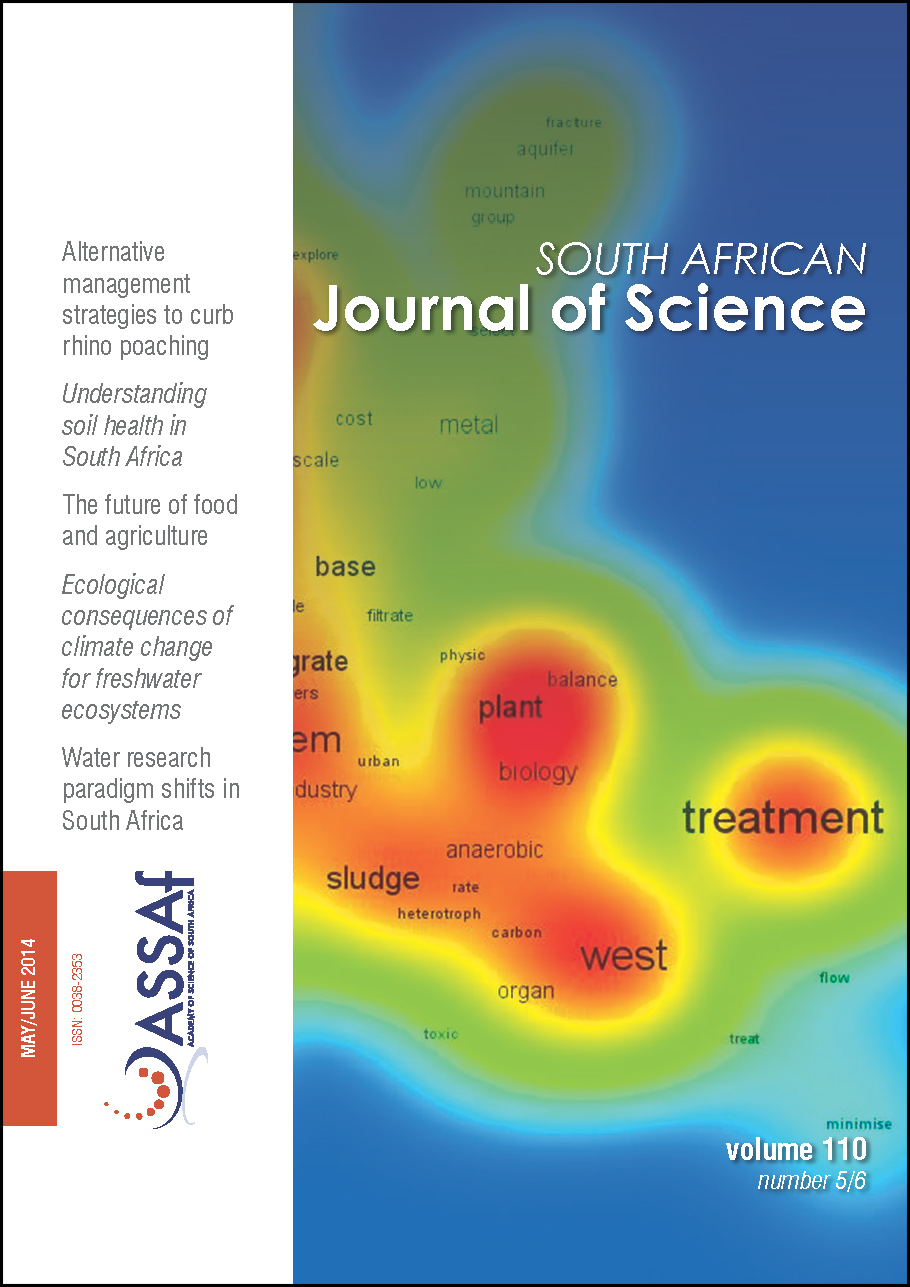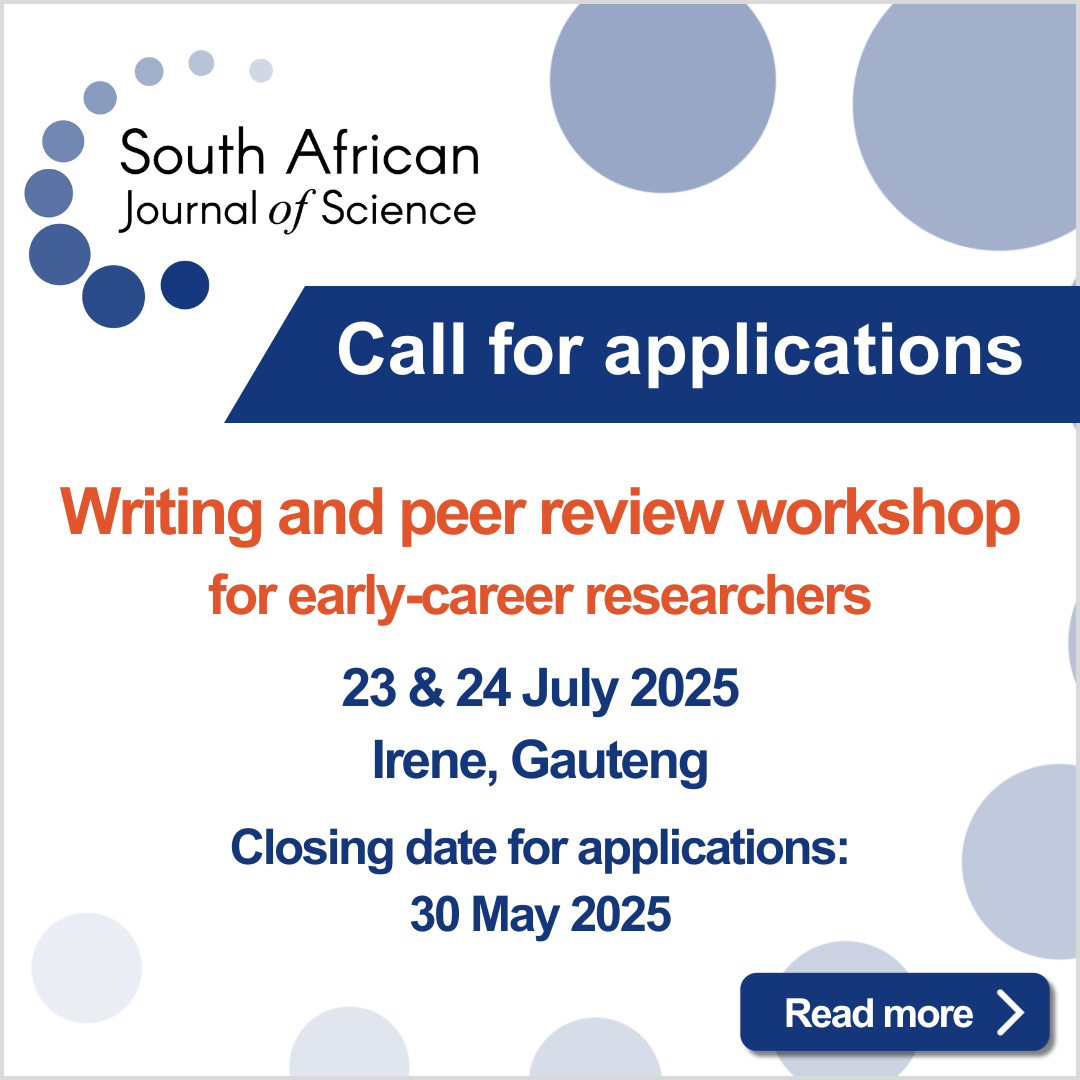Water research paradigm shifts in South Africa
DOI:
https://doi.org/10.1590/sajs.2014/20130296Keywords:
research, paradigms, South Africa, horizon scanning, scientometricsAbstract
We performed a scientometric analysis of water research publications extracted from four decades of South African related papers to identify paradigms and paradigm shifts within water research in South Africa. Between 1977 and 1991, research publications are dominated by research into technical and engineering solutions, as well as designs and plans to secure water supply. From 1992 to 2001, publications on water pollution, water quality, water resource management and planning are prominent. The second major paradigm is observed from 2001 to 2011 in which the emphasis is on planning, modelling, catchment-scale studies and a multidisciplinary approach to research. Another transition period, towards the end of 2011, is characterised by uncertainty, although it also shows the prominence of key concepts such as participation, governance and politics in water management. The second aim of this study was to identify and prioritise current and future water research questions through the participation of a wide range of researchers from across the country, and to relate these questions to research paradigms, issues and concerns in water in South Africa. Over 1600 questions were collected, reduced in number and then prioritised by specialists in the water sector. The majority (78%) of questions offered by respondents in the South African case study dealt with relatively short- to medium-term research requirements with 47% of questions focused on medium-term issues such as supplying water, service delivery and technical solutions.
Published
Issue
Section
License

This work is licensed under a Creative Commons Attribution 4.0 International License.

All articles are published under a Creative Commons Attribution 4.0 International Licence
Copyright is retained by the authors. Readers are welcome to reproduce, share and adapt the content without permission provided the source is attributed.
Disclaimer: The publisher and editors accept no responsibility for statements made by the authors
How to Cite
- Abstract 702
- PDF 671
- EPUB 211
- XML 256













.png)